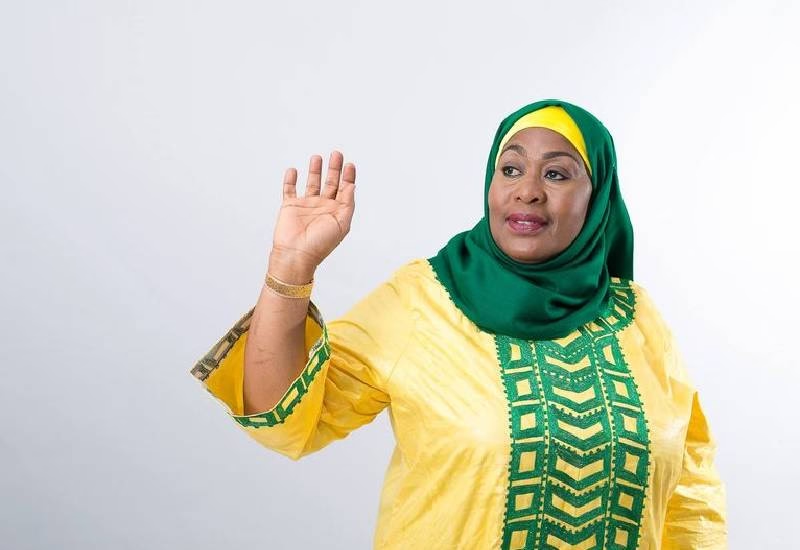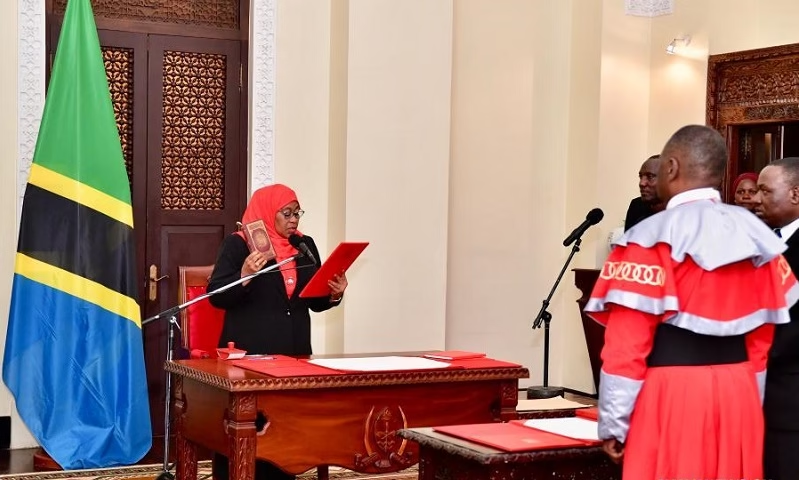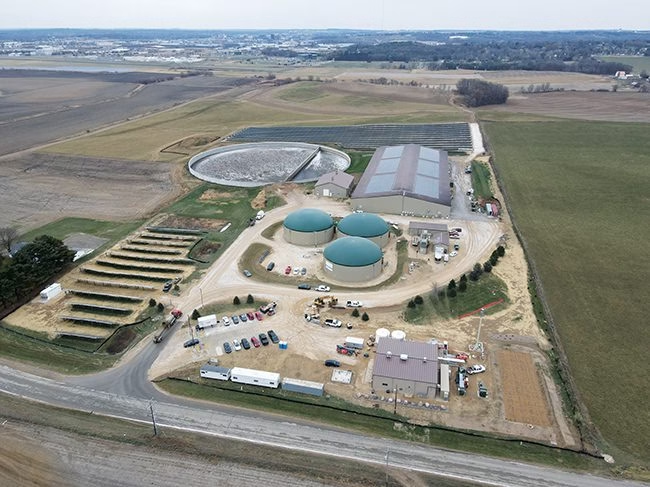
Her History
Within the hybrid geopolitical context of Africa, some actors have positioned themselves far in front of their peer group not only because of titles they can now call their own, but, perhaps more importantly, they have opened up new paths. One such actor is Samia Hassan Suluhu.
As the first female president in Tanzania and the first woman to be president in any country in East Africa, her rise as head of state not only means something to her, but is also an important milestone on the road to gender parity in leadership for the continent.
Tanzania had not experienced a rise to such a level of political power for women before Samia. Therefore, in a predominantly patriarchal political landscape across the continent, Samia’s emergence indicates that progress has momentum and will inspire future generations of women who also aspire to lead. Her presidency represents durability, intention, resilience, and movement towards an inclusive governance model.
However, symbolism aside, we are talking about a woman of personal integrity, grit, public service, and experience in governance. Samia can lean on her history, including not only being the first but also serving the people well, simply because it is her passion.
Samia’s leadership demonstrates the power of change latent within women on the continent in transforming not only the political environment on the continent, but also the economic trajectory.
An Overview of Her Journey
Samia Suluhu’s political trek is not something that occurred overnight. She climbed from the local governance structures at the sub-county level through the layers of political authority (to become a national and then international figure).
Her political career spans multiple decades, built on the premises of service, duty, and progressive thought. From sitting in the Zanzibar House of Representatives to serving in ministerial cabinets, then rising to the office of Vice President in 2015, her journey has been amazing.
After the late President John Magufuli died in March of 2021, the Tanzanian constitution mandated that the “Vice President shall become the President”. Samia Suluhu became the President. She did this in a calm, competent, and courageous way. By taking control in this manner, she not only led a mourning nation but also started a new episode in Tanzanian politics.
Early Life and Background
Birth and Family Background
On the 27th of January 1960, Samia Hassan Suluhu was born in the Sultanate of Zanzibar, an island territory that subsequently came together with Tanganyika to become the present-day Tanzania. Coming from a humble family, Samia’s background was filled with cultural and religious values, which ultimately propelled her into her life as a person and leader. Her father was a teacher and her mother a housewife; however, they both made certain it was understood in the family that the importance of education and industry would be just as much sought after as personal excellence.
As a child born and raised in Zanzibar, an area of East Africa where the blend of Swahili culture and Islamic traditions was rich and present, Samia experienced the mindset of societal dynamics that influenced women’s spheres of operation in the region.
Even in a community with conservative expectations, she learned to dream past these limitations. This period of her life had challenges and encouragement in equal measure; it uniquely blended bonds of resiliency in her spirit.
As the second child among four siblings, she expressed a favorable disposition to accepting responsibility. This early stage in her development would set the course for her dedication to public service. She learned values in life of humility, integrity, and compassion that are so apparent in her political life today.
Childhood Education
Education played an integral role in Samia’s life. Samia started with her primary education in Zanzibar before she did her secondary studies at Lumumba Secondary School. From the outset of her schooling, Samia showed an adequate interest to learn.
She had a good interest in governance and public administration. Unlike many other girls at the time who dropped out of school for societal expectations, Samia’s education was uninterrupted, with some credit to her family and her resolve.
Upon completing high school, Samia got a diploma in public administration from Mzumbe University one of the best universities to learn about governance in Tanzania. This was merely the beginning. Over the years, she was upskilled by attending courses from various international institutions, including the University of Manchester in the UK, where she received a postgraduate diploma in economics.
Her academic qualifications exemplified lifelong learning, something that has aided her in traversing the politically complex and nuanced governance landscape. More importantly, it also suited her to be a competent professional who could understand and handle complex policy questions.
Academic and Professional Career
First Steps in a Career
Initially, Samia’s career was in civil service, and before entering the political sphere, she cut her teeth with the Ministry of Planning and Development in Zanzibar. At the ministry, Samia held the title of clerk and, through commitment and outstanding organizational skills, was gradually promoted. These were not prestigious jobs, yet they were crucial in helping her understand how government operated from the inside.
By the late 1980s, she was establishing herself as an effective administrator and eventually worked for many development organizations and non-profit agencies on issues of gender equality, education, and health, among other important issues that later became her political agenda.
Her work with international development agencies helped her develop relationships and understand developments in the international sphere that assisted her in becoming a leader with an understanding of the totality and complexity of global development.
In her various roles, Samia demonstrated not just competence but her ability to empathize with people, understand their needs, and make efficient decisions. In this combination of empathy and efficiency lay the style and characteristics she embodied as a politician.
Educational Achievements and Qualifications
Samia’s educational journey illustrates her purpose and commitment. Her previous diplomas in both public administration and economics are just the beginning: she took extra training in leadership, policy development, and conflict resolution. Some of her key credentials are:
- Postgraduate Diploma in Economics, University of Manchester
- Advanced training in Development Management at the Institute of Management for Leaders in India
- Diplomatic training and peace studies seminars are offered by various international organizations
These educational achievements helped Samia to develop a presence of more than a political figure to a thought leader on issues relating to national development, governance reform, and international diplomacy. The diversity of her education enables her to engage in expertise with, and relate to, policymakers, economists, and civil society leaders equally.
Entry into Politics
Samia’s political career officially started in the year 2000 when she was elected a member in the special seat category of Zanzibar’s House of Representatives. Samia’s election was quite remarkable as women’s political participation in Zanzibar at this time was low, and many considered her election to be a step in the right direction. When she was elected, her focus was on women’s empowerment and education, areas she had already cultivated a brand in civil society.
It was not long after articulating policy issues and proposing workable solutions that Samia began to be visible in the political landscape. She was appointed Minister of Youth Employment, Women, and Children in the Zanzibar Government within a couple of years of first entering politics. It was a portfolio that she was passionate about and left tangible outputs throughout the region.
Rise Through the Political Ranks
After demonstrating her worth in the reception area of Zanzibar, Samia progressed to the national political stage. She was elected in 2010 as the Member of Parliament for Makunduchi, and was appointed Minister of State – Union Affairs soon after under the government of President Jakaya Kikwete.
Being in a Ministerial position of State under Union Affairs put Samia at the centre of Tanzania’s political arrangement (the union of Tanganyika and Zanzibar). Engaging in a mix of diplomacy, intellect, and assertiveness, Samia successfully monitored and moulded Tanzania’s unique relationship.
Her contributions in the union ministry were recognized as stellar, and by 2014, she was appointed as Vice Chairperson of the Constituent Assembly entrusted with writing the new constitution. As a result of this position, she rose to prominence as the leader of the Constituent Assembly and the leader of Tanzania.
Leadership Roles and Milestones
Being Minister in Zanzibar
Before making her mark on the national stage, Samia Suluhu Hassan made an impact in the semi-autonomous territory of Zanzibar. She began her work in Zanzibar as the Minister for Youth Employment, Women, and Children, working to combat long-standing social problems.
She emphasized girl-child education, women’s economic participation, and child exploitation. Because of her deep connection to the grassroots, she understood the real issues in the communities where she worked and was able to translate their realities into workable policies. The experiences that she gained while in Zanzibar played a critical role in her development of an inclusive leadership style that is recognizable as people-centred.
National Political Roles in the Union Government
Moving to the national government represented the next stage in Samia’s political journey. She became Minister of State for Union Affairs and was granted an important link between the Tanzanian mainland and Zanzibar.
The role was constitutionally serious and politically sensitive; Samia needed to be tactful about bridging the gap in terms of reality, political ambition, and imagination. She handled this sensitive portfolio exceedingly well. She devised new pathways to peace, which helped to mediate tension between the islands and the mainland and lay the ground for possible unification in the future.
Becoming Vice President
Selection and Role in the 2015 Elections
In 2015, Samia was selected as John Magufuli’s running mate for presidential office; her selection was both practical and symbolic: it demonstrated inclusivity through individual representation of a woman and a Zanzibar, with the election victory nominally making Samia the first female Vice President in Tanzanian history with the symbolic elevation of womanhood within leadership.
She worked diligently in the shadows of leadership, functioning as oversight of government function and domestic policy in civil and intergovernmental relations, particularly public service/policy and social sectors.
Major Contributions as Vice President
Samia was a genuine vice president offering much more than ceremony. She led what turned out to be a range of new initiatives on sustainable development, health policy, and women and empowerment. She became a respected stateswoman, known for remaining calm and thoughtful amid working within tumult and complexity.
Amongst succeeding Presidents, she had led Tanzania’s improved relationship with the global community through all diplomatic efforts, making her increasingly significant to their institutions. This was understood by all global leaders, and through diplomacy, it is evident, she led the way towards an ease of welcoming by and appealing optics around foreign investment/aid relationships.
Presidency in Tanzania

Context of Her Presidency
When President Magufuli passed away unexpectedly in March 2021, the Tanzanian constitution provided that the Vice President be called on to assume power. Samia Suluhu Hassan assumed power during a time of tension and uncertainty. And her peaceful transition was against the predictions of upheaval and chaos. She became the sixth president of Tanzania when she took the oath of office on March 19, 2021, and she became Tanzania’s first female president.
First Woman President in Tanzania and East Africa
Her presidency would be a historic moment not just for Tanzania but for all of East Africa. She shattered the ultimate political glass ceiling in a place where women have very rarely reached leadership positions. Her ascendancy was celebrated all around the globe as a historic moment for African women. It was a signal that change is possible, that there were forms of leadership that are different yet still deliver results.



